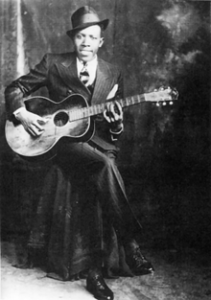
BY NECDET BALKIR GÖKA (ME/IV) balkir.goka@ug.bilkent.edu.tr
There are various milestones in the history of music. Nowadays, electronically produced songs are popular, but this is just a current trend that will end in a few years. It’s not hard for those who are interested to observe the evolution of music. It should be noted that I’m not talking about classical music here, since my knowledge of such serious art is very limited. But in the field of popular music, some great artists were performing during the period between the 1960s and the 1980s. For some music enthusiasts, this era represents the peak of musical creativity. The majority of songs produced were called rock music, and the main musical instrument was the electric guitar. The most popular bands, like Cream, Led Zeppelin and the Rolling Stones, gave huge concerts. It was the most creative era in popular music because there was a great deal of competition to produce the best music. If you listen to the bands or solo projects of this era, you’ll notice that each musician or band sounds very different. However, they all converge to one point: Robert Johnson. An enormous number of bands and their songs represent the fruition of the music of the greatest blues singer who ever lived.
We have limited information about this artist. That’s why there’s a Faustian myth that says Johnson, while living in rural Mississippi, had a tremendous desire to become a great musician. He was told to take his guitar and go to a crossroads at midnight. There he met with the devil, who took the guitar and tuned it. The devil gave him the talent and knowledge to become the greatest blues musician ever, but not free of charge. In return, Johnson gave his soul.
Such a myth shows us how the songs of single person were able to affect the generation after him. No musicians of the 1960s, ’70s and ’80s had met Robert Johnson, but they all considered the music he had recorded 30 years before to be a masterpiece, the apex of the blues. The reason for this is his playing style. Although his recorded music is called Delta blues, we can’t easily categorize his playing style, because he uses complicated techniques on top of his work-song style of singing. Nonetheless, understanding work songs is very important for grasping the foundation that Johnson built his playing style on.

When Africans were brought to America to provide labor as slaves, they were sold to landowners. Most of these slaves worked in agricultural areas. While cultivating the soil, they sang without any instrumental accompaniment (a cappella) in coordination with the rhythm of their work. In time, these songs became part of African American culture, and the origin of blues and jazz. When listening to Robert Johnson, it is easy to hear that the style of singing is the same as that which would accompany work in the fields. Some examples are “Come On in My Kitchen,” “Rambling on My Mind” and “Me and the Devil.”
In most folk songs in all cultures, singing is the main element because traditionally, information was transferred orally. However, what Robert Johnson did was add flavor and soul to the singing through the use of guitar riffs. He didn’t play a simple guitar accompaniment to the vocal melody, as in most folk songs. Instead, he took the monotonic work songs and added extremely complicated guitar riffs, making these songs polytonic. And the riffs were not played arbitrarily. Sometimes you can hear big, slow chords with some melodic bluesy lines, but at other times Johnson plays fast staccato lines that increase the tension of the song. Thus, each rhythmic and melodic line serves to express the feeling of the song.
Describing the beauty of Robert Johnson’s songs is extremely difficult, but understanding his music is important to fully grasp the work of the next generation, which is considered the golden age of popular music. Musicians like Eric Clapton and Keith Richards made albums that memorialized Johnson and modernized his songs for a younger audience. If the audio quality of the original recordings doesn’t satisfy you, I recommend that you start by listening to Clapton’s and Richards’s covers, and maybe some more modern rock covers as well. After listening carefully to Johnson’s music, you may be surprised when you realize the extent to which we are still using what he developed.
